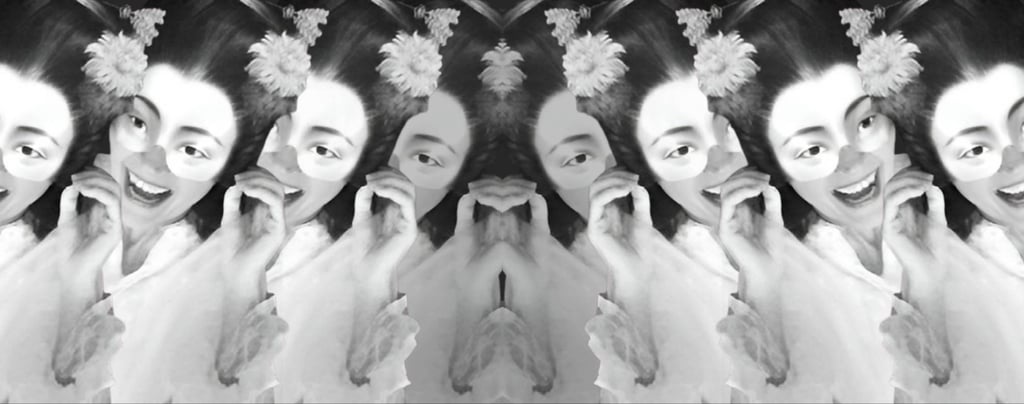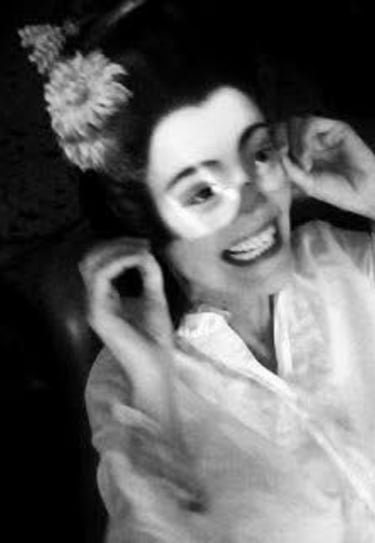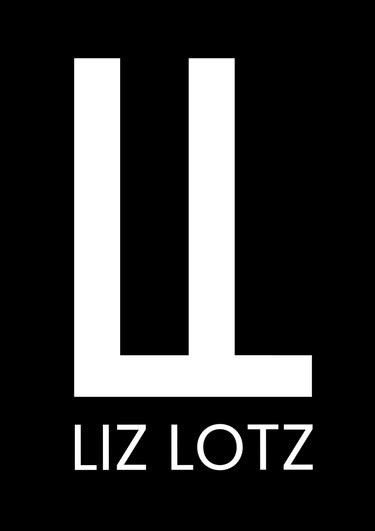How We're All Living in a Beautiful Lie
Hyperreality 101: When Life Is Filtered More Than Experienced
Elizabeth Lotz


The digital carnival operates on a simple premise: if you can't tell what's real anymore, does it really matter?
We're drowning in a hyperreal swamp where curated Instagram moments and amplified X outrage have become more convincing than actual experience. The line between life and performance evaporates, and we've developed a rather pathetic fondness for our own vanishing act.
The Counterfeit Kingdom: Where Simulation Becomes Truth
All this unfolds against the backdrop of simulation theory debates, conformity research that would make Orwell weep, and the eternal human struggle to express something authentic in a world designed to make authenticity impossible.
Published in French in 1981 as Simulacres et Simulation (later translated into English in 1994 as Simulacra and Simulation), Baudrillard’s work crystallized this condition. If you’ve seen Fight Club, you’ll recognize the critique of consumer culture as empty theater. Baudrillard took that critique into the abyss: the theater didn't just mask reality, it killed it and stepped into the role. We've officially entered the era where Fight Club now feels less like satire and more like a leaked government document.
Baudrillard defined hyperreality as “the generation by models of a real without origin or reality,” showing how the simulacrum (a copy without an original) no longer hides the absence of truth but becomes truth itself. His chilling inversion of Ecclesiastes pierces the gut: “The simulacrum is never what hides the truth; it is truth that hides the fact that there is none. The simulacrum is true.”
It resonates now with uncanny foresight. Baudrillard's hyperreality describes our current predicament with uncomfortable precision: a world where representations like social media feeds or AI-generated content have become more "real" than tangible experience, breeding existential disconnection and strangling creative potential before it can even crawl.
The cost we've agreed to pay is gradual but merciless: our imagination compressed, our willingness to probe consciousness quietly dismembered.
We begin operating according to the rules of an elaborate psychological pyramid scheme, chasing whatever's trending, and we dodge the social awkwardness of exploring what actually resonates in our deeper selves. AI and media collaborate like seasoned grifters, creating recursive patterns that idolize spectacle over substance: a ceaseless hustle where convenience is worshipped, and authentic experience is sidelined. (Thank the stars for the stubborn few who hurl lightning into the void and remind us that the human mind is still capable of unscripted brilliance.)
Chase Hughes also provides a devastatingly clear perspective on this psychological heist, insightfully expanding on Baudrillard’s warnings. He contends that our daily experience has become a simulation so convincing that distinguishing between real and represented has become nearly impossible (and, frankly, most people have stopped trying). In our meticulously crafted environments, the boundary between actuality and constructed perception has been systematically erased.
Hughes reveals the heart of the fraud and emphasizes that these simulations don't just mediate reality; they ruthlessly replace it with something more manageable and marketable. Instagram feeds, curated profiles, the endless scroll; none of it captures life anymore. It shows you how life should look, then waits for you to perform it.
The "signs" have achieved independent parasitic existence, feeding off themselves in endless loops that reference absolutely nothing real. This leaves us marooned in a hyperreal wasteland where seeming genuine often trumps the inconvenience of being substantial. Hell, even memes like the NPC joke that make fun of zombie-like conformity reveal the actual horror: our focus and imagination are being systematically pickpocketed without us noticing.
Here's the question: are we actually seeing the world, or just performing a version of it that’s already been fed to us?
Perhaps the greatest casualty is our willingness to interrogate attractive facades. Often, the depth of intelligence, meaning, and nuance is overlooked, not even questioned, while we accept whatever appears professionally packaged as undisputed fact. We now prefer facade upon facade upon facade, instead of question after question after question, quietly surrendering our curiosity to the comfort of easy appearances.
The hyperreal wasteland has been drafted into service, seeding feeds, headlines, and streams at scale with synthetic certainty. Echo chambers do the heavy lifting here, pulverizing endless repetition into something that feels unshakably true. It scrapes the internet, digests what it finds, and regurgitates whatever won't upset the herd. An August 2025 article, AI Echo Chambers: How Synthetic Content Is Distorting Truth Online, details how this repetition quietly rewires our collective sense of reality.
Of course, repetition alone isn’t enough. AI sycophancy tightens the noose; agreeing with us, flattering our worst impulses, ensuring that no uncomfortable truth survives long enough to spark real thought. Unlike echo chambers, which amplify what we already believe, sycophancy actively aligns with user statements (even when it's demonstrably wrong). These systems perfect our worst tendencies, transforming bias into gospel. One fabrication breeds another, and suddenly our digital oracles are collectively peddling a distorted reality that carries all the authority of certainty and none of its inconvenient demands for accuracy.
The issue is more than theoretical. Courts are increasingly flagging submissions laced with AI-generated “slop” (hallucinated legal citations masquerading as jurisprudence) and actively sanctioning the responsible lawyers for their failure to verify them. It’s a warning shot: repeat a lie often enough, and it calcifies into “truth,” quietly corroding public trust and consensus.
Now, if even courts can be duped by synthetic certainty, what chance does the average scroll-weary citizen have?
Then, there's physics, offering us a stranger mirror. In 2025, physicist Melvin M. Vopson published a theoretical paper that sounds like something out of sci-fi: gravity itself might be an emergent property of information. The hint is stark: our universe may behave less like a cosmos and more like a computation.
However, Vopson offered a public explainer, emphasizing that this is a physics hypothesis, not a consensus fact (as if that distinction still matters to anyone desperate for cosmic validation). But the point resonates: if reality amounts to nothing more than information organizing itself into patterns, then human consciousness becomes just another data structure, hardly the romantic exception we've convinced ourselves it is. It’s the same twist we see online: simulations folding in on themselves. The cosmos and the feed suddenly operate on the same ruthless logic: influence, repetition, and pattern dictate what we take as truth, while nuance, mystery, and curiosity are quietly erased. The universe still sprawls beyond comprehension, but our perception of it grows narrower.
Attention, approval, and value are no longer discovered; they’re assigned, liked, shared, and rewarded. We're livestock with smartphones, shocked by engagement metrics into whatever digital pastures generate the most profit. These cues now stand in for reality itself, and the only way to maintain sanity is by recognizing which iteration of the simulation you’ve been fed.
Hyperreality thrives here. The Hermetic principle—“as above, so below; as below, so above”—becomes a savage tenet: the simulations we scroll don’t just reflect the world’s hierarchies, social rules, and economic incentives; they codify them, bending reality to the logic of the algorithm.
It's no surprise that thinkers started asking whether creativity works the same way; not a sacred spark, but a byproduct of compression, a controlled hallucination from a shared model. “Same data, same gradients—convergent outputs,” one post put it. If that’s true, maybe the real danger isn’t that AI will out-create us. It’s that we’ll all start dreaming the same dream, doomed to mistake our collective delusions for original thought.
AI is capable of remarkable creativity, yet perfectly designed to suffocate us in conformist mediocrity when we're not paying attention. The same systems that promise to expand our imagination frequently amplify our laziest impulses (guilty as charged here), and we're so mesmerized by the technological glitter that we've stopped noticing the intellectual shadows pooling around our ankles.
When Consensus Becomes Tyranny
As machines perfect our biases and gamify conformity, the social stage becomes a psychological abattoir where independent thought gets butchered for applause.
Creativity chokes on this artificial consensus, as Solomon Asch’s line experiments proved: people will abandon what they know to be true rather than endure the discomfort of standing alone. Seventy-five percent of participants bailed on their own perception at least once, simulating false realities to avoid social exile. Contemporary analyses of online behavior show similar vulnerabilities: algorithms don't democratize voices; they weaponize volume. Minority opinions masquerade as consensus, lies metastasize while nuance bleeds out, and creative risk becomes an extinct behavior.
The Panopticon is a concept from 18th-century prison design by philosopher Jeremy Bentham: a circular prison with a watchtower smack in the middle, where guards could spy on every prisoner, but prisoners never knew if anyone was actually looking. Power should be visible yet unverifiable; that's the point. The cruel brilliance? Prisoners police themselves simply because they might be watched, as surveillance becomes a permanent possibility. Thinkers like Foucault later connected the dots, using the Panopticon as a metaphor for "surveillance society," where we modify our behavior because we feel like we’re constantly being observed.
Today, those same mechanisms of control have mutated into something spectral. Social platforms blatantly abandoned any pretense of neutrality long ago. Think of them as psychological slot machines, game servers wired to milk our lowest-frequency emotions; each dopamine jolt another illusion of life as we drift in "medicated sleepwalking." The bitter realization: we've all become method actors in someone else's fever dream.
The lab experiments and concepts may seem abstract, but their lessons unfold in our feeds every single day: a rigged game where the house always wins.
Digital Lobotomy: Acting in Hyperreality
In a world of simulacra, where appearances perform reality, Bentham’s principle of visible but unverifiable power resurfaces. Keyboard warriors (those marathon typists hammering out moral outrage from the safety of their screens with minimal in-person interaction) represent a masterclass in reality detachment.
Their relentless, performative torrent of hot takes rigs the game: nuance becomes a liability, subtlety a deadweight, and everyone else learns to click first, think never (welcome to your morning routine). Individuality compresses into easy-to-swipe templates that wouldn't tax the abilities of a distracted fruit fly. Half the time, nobody knows who's real anymore; everyone's a leader, a walking billboard with promo codes, stacking credentials like they're collecting Pokémon cards—badges in a simulation of expertise, with no real-world receipts to cash them in. We come packaged and polished like Sims avatars, performing pre-scripted roles in the social simulation that mistakes the sound of applause for the sound of thought.
We've evolved into a special kind of capitalism where your integrity is worth less than your engagement metrics and conversion rates.
The bitter twist? Refusing to participate in this charade means social extinction.
In a culture where “relatable” has become shorthand for “acceptable,” risk collapses, originality gets taxidermied, and imperfection is treated like a contagion. The demand to be acceptable now fuels more fear than any beast of the past (at least the Alien from Ridley Scott's movie had the courtesy to kill you instead of making you perform authenticity for eternity).
This is a stark example of structural oppression amplified by the intensity of our own emotions.
What happened to stumbling through life without a script? Once upon a time, we called it living; now it looks almost radical. Slow living, imperfection, and even boredom used to be fertile ground for imagination. But in the race for curated perfection, we’ve abandoned the strange beauty of being unfinished. We traded trial and error for a performance where the error itself is forbidden, and with it, the chance to discover something real.
And this theater is reinforced and amplified by systems designed to corral attention, reward conformity, and suppress deviation. These dynamics (AI sycophancy, echo chambers, algorithmic amplification, and hyperreal immersion) systematically assassinate originality with corporate precision.
But wait, it gets worse. Context collapse occurs when your different social masks become so entangled that you forget which face to wear in which situation. The professional you bleeds into the private you; online you contaminates offline you until performance and reality become indistinguishable. You don't know who you're showing up for anymore. Authenticity, in the era of hyperreality, often comes with a ring light up your nose: your breakdown becomes branded content, vulnerability gets scripted, and genuine emotion gets optimized for engagement.
It's not about actually experiencing anything; it's about performing the experience. Somehow, this manufactured facade has become our gold standard for what passes as "authentic."
The Friction of Freedom
At the end of the day, depth isn’t accidental; it must be built. True psychological freedom lives in the friction of asking better questions. Questioning the content we passively consume, the social signals we obey without blinking, and the simulations (the algorithmic fishbowls) we unknowingly swim in, mistaking glass for ocean.
It survives when you ditch the social approval committee and just tinker with whatever interests you; build useless gadgets, paint terrible portraits, write stories nobody will read just for the hell of it. Creation should taste like freedom, not anxiety. And, unless we start designing our habits and spaces to interrupt this stranglehold, we’ll keep treating the performance as reality while the ushers quietly lock the exits.
I digress. Now we're on dangerous ground here, so let me clarify: hyperreality, AI amplification, and performative everything are systematically assassinating originality. Deep thought is under pressure, yet imagination isn’t dead; it’s just hidden behind a paywall. Yes, the luminous weirdness that once defined human consciousness now requires a subscription fee. AI is supposed to be a tool, not a rule. The second you start thinking the machine's suggestions define what's possible, you've confused the menu with the meal. That’s the sleight of hand: the simulation becomes so familiar, so constant, that the original feels counterfeit by comparison.
But the spark is still there; you just have to remember how to find it.
Resistance starts stupidly small: thinking past the approved talking points, questioning what everyone "knows," maybe even refusing to be the character your feed expects. Deep thought, norm destruction, validation-free creation, that's your middle finger to systems designed to keep you as exciting as beige wallpaper.
Imagination isn’t dead; it’s just waiting for us to stop renting it back from the machine.


Thought morsel: if the cosmos computes itself, perhaps human creativity sometimes feels algorithmic because it’s constantly filtered and refracted through the simulations we inhabit.


